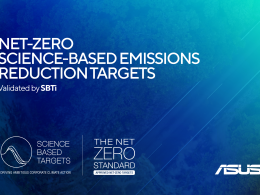Norwegian energy giant Equinor is halving its investment in renewables over the next two years while ramping up oil and gas production by 10%. The company cites rising costs, slow energy transition, and lack of long-term customer commitments as key factors behind the shift.
Chief executive Anders Opedal defended the decision, stating that low-carbon energy projects were not delivering the expected profitability. Equinor will now invest $5 billion in renewables, down from $10 billion, and has abandoned its goal of allocating 50% of its fixed asset budget to renewables and low-carbon projects by 2030.
Opedal expressed confidence that the controversial Rosebank oil field—believed to hold 500 million barrels of oil—would proceed, despite a Scottish court ruling that its approval had been granted unlawfully. The ruling found that environmental impacts had not been fully considered.
“This is an important project,” Opedal told a media house. “It provides local jobs in Scotland and across the UK. Western Europe and the UK should produce the oil and gas they consume rather than relying on external suppliers.”
The UK government, including Energy Secretary Ed Miliband, has opposed the development. Climate campaigners argue that new fossil fuel projects will not lower UK energy bills or enhance energy security as most extracted oil is sold on international markets.
Tessa Khan, from the environmental group Uplift, which challenged the project alongside Greenpeace, dismissed Equinor’s optimism. “There is a regulatory process that must be satisfied, and strong public interest arguments against Rosebank. This won’t be a straightforward decision,” she said.
Opedal also warned of a potential spike in gas prices next winter, citing lower European gas storage levels compared to last year. “Europe will need to replenish greater amounts of gas, and increased demand from China could drive up prices,” he cautioned.
Equinor follows a broader trend among oil majors scaling back on renewables. Shell and BP have both adjusted their strategies, prioritising oil and gas production amid profitability concerns.
Opedal appeared to welcome Donald Trump’s pro-oil stance, but insisted that market conditions, not politics, dictate investment decisions. “If prices rise, more wells will be drilled. If they fall, fewer will,” he said.
When asked how Equinor’s expanded drilling aligned with its 2050 net-zero target, Opedal acknowledged the challenge. “Producing more now makes the later years harder,” he admitted.
The UK government maintains that its priority is a “fair, orderly, and prosperous transition in the North Sea,” balancing energy security, lower bills, and sustainable job creation.
















